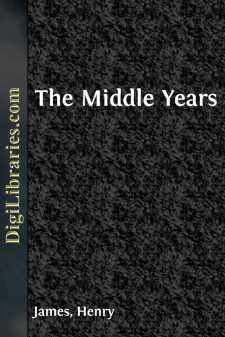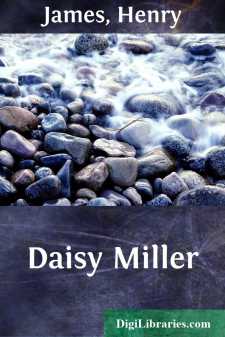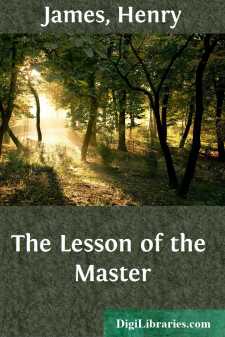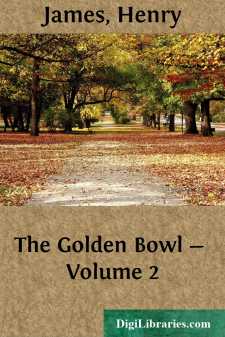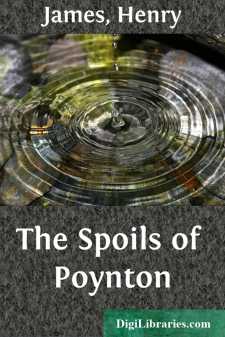Categories
- Antiques & Collectibles 13
- Architecture 36
- Art 48
- Bibles 22
- Biography & Autobiography 813
- Body, Mind & Spirit 142
- Business & Economics 28
- Children's Books 17
- Children's Fiction 14
- Computers 4
- Cooking 94
- Crafts & Hobbies 4
- Drama 346
- Education 46
- Family & Relationships 57
- Fiction 11829
- Games 19
- Gardening 17
- Health & Fitness 34
- History 1377
- House & Home 1
- Humor 147
- Juvenile Fiction 1873
- Juvenile Nonfiction 202
- Language Arts & Disciplines 88
- Law 16
- Literary Collections 686
- Literary Criticism 179
- Mathematics 13
- Medical 41
- Music 40
- Nature 179
- Non-Classifiable 1768
- Performing Arts 7
- Periodicals 1453
- Philosophy 64
- Photography 2
- Poetry 896
- Political Science 203
- Psychology 42
- Reference 154
- Religion 513
- Science 126
- Self-Help 84
- Social Science 81
- Sports & Recreation 34
- Study Aids 3
- Technology & Engineering 59
- Transportation 23
- Travel 463
- True Crime 29
Sort by:
by:
Henry James
I If the author of this meandering record has noted elsewhere that an event occurring early in 1870 was to mark the end of his youth, he is moved here at once to qualify in one or two respects that emphasis. Everything depends in such a view on what one means by one's youth—so shifting a consciousness is this, and so related at the same time to many different matters. We are never old, that is...
more...
by:
Henry James
"Olive will come down in about ten minutes; she told me to tell you that. About ten; that is exactly like Olive. Neither five nor fifteen, and yet not ten exactly, but either nine or eleven. She didn't tell me to say she was glad to see you, because she doesn't know whether she is or not, and she wouldn't for the world expose herself to telling a fib. She is very honest, is Olive...
more...
by:
Henry James
On the morrow, in the evening, Lord Warburton went again to see his friends at their hotel, and at this establishment he learned that they had gone to the opera. He drove to the opera with the idea of paying them a visit in their box after the easy Italian fashion; and when he had obtained his admittance—it was one of the secondary theatres—looked about the large, bare, ill-lighted house. An act...
more...
by:
Henry James
PART I At the little town of Vevey, in Switzerland, there is a particularly comfortable hotel. There are, indeed, many hotels, for the entertainment of tourists is the business of the place, which, as many travelers will remember, is seated upon the edge of a remarkably blue lake—a lake that it behooves every tourist to visit. The shore of the lake presents an unbroken array of establishments of this...
more...
by:
Henry James
The litigation seemed interminable and had in fact been complicated; but by the decision on the appeal the judgement of the divorce-court was confirmed as to the assignment of the child. The father, who, though bespattered from head to foot, had made good his case, was, in pursuance of this triumph, appointed to keep her: it was not so much that the mother's character had been more absolutely...
more...
by:
Henry James
THE DIARY OF A MAN OF FIFTYby Henry James Florence, April 5th, 1874.—They told me I should find Italy greatly changed; and in seven-and-twenty years there is room for changes. But to me everything is so perfectly the same that I seem to be living my youth over again; all the forgotten impressions of that enchanting time come back to me. At the moment they were powerful enough; but they afterwards...
more...
by:
Henry James
It relates to my youth, and to Italy: two fine things! (H--- began). I had arrived late in the evening at Florence, and while I finished my bottle of wine at supper, had fancied that, tired traveller though I was, I might pay the city a finer compliment than by going vulgarly to bed. A narrow passage wandered darkly away out of the little square before my hotel, and looked as if it bored into the...
more...
by:
Henry James
CHAPTER I He had been told the ladies were at church, but this was corrected by what he saw from the top of the steps—they descended from a great height in two arms, with a circular sweep of the most charming effect—at the threshold of the door which, from the long bright gallery, overlooked the immense lawn. Three gentlemen, on the grass, at a distance, sat under the great trees, while the...
more...
by:
Henry James
"But how—at the worst?" "Oh, 'the worst'—don't talk about the worst! I can keep them quiet at the best, I seem to feel, simply by our being there. It will work, from week to week, of itself. You'll see." He was willing enough to see, but he desired to provide—! "Yet if it doesn't work?" "Ah, that's talking about the worst!" Well, it...
more...
by:
Henry James
Mrs. Gereth had said she would go with the rest to church, but suddenly it seemed to her that she should not be able to wait even till church-time for relief: breakfast, at Waterbath, was a punctual meal, and she had still nearly an hour on her hands. Knowing the church to be near, she prepared in her room for the little rural walk, and on her way down again, passing through corridors and observing...
more...


